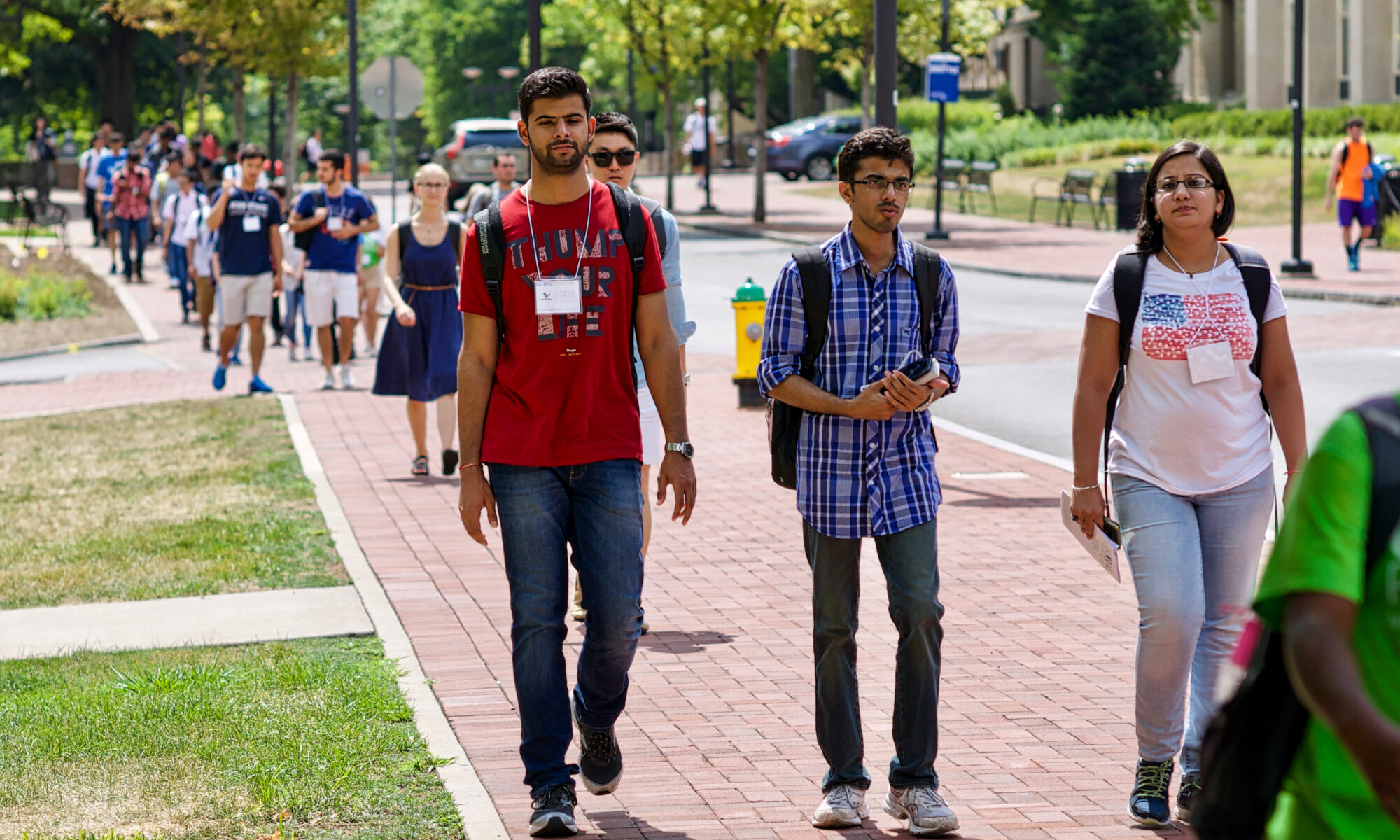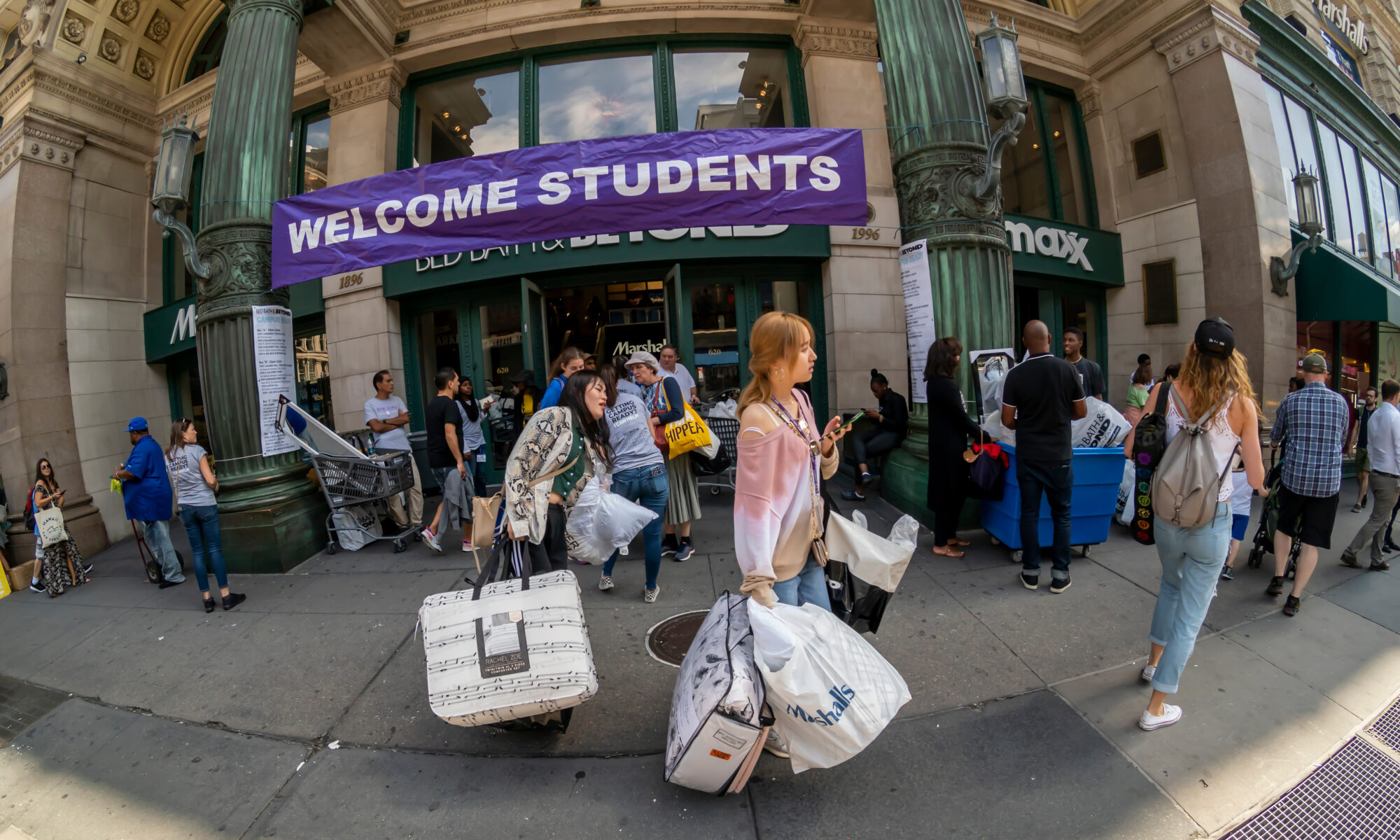I remember looking at older friends’ pictures from university while I was in school with envy. I couldn’t wait to join in the fun. A month into my own time on campus, however, I realised hadn’t thought at all about managing my mental health at university.
I’d been misled by my friends’ ‘highlight reel’ of the student experience. Of course nobody uploads photos of them working late into the night, or struggling to connect with strangers, or just going through life without the support system they’d known at home. Another huge thing I hadn’t realised was simply how much time I’d spend on my own if I weren’t proactive about it.
Student mental health
The arrival on campus brings amazing new opportunities. However, the upheaval can also leave you vulnerable to struggles with your mental health at university, as you deal with the stresses of adult life for the first time. This situation has been compounded by two years of cancelled social activities and classes held behind a computer screen. In an NUS survey, over half of participants said that their mental health had been negatively affected by COVID-19. Less than a third of them had sought help. According to the Office for National Statistics, 26% of students reported feeling lonely often or always, compared with 8% of adults in general.
Students can experience struggles with all aspects of their mental and emotional health. Triggers that students report include study and work pressures, relationship trouble, homesickness and loneliness, financial worries, and bullying. Anxiety is one of the most commonly-diagnosed mental health problems among students, as well as depression and suicidal feelings.
Warning signs for these disorders include things like extreme highs and lows of emotion, changes in eating and sleeping patterns, lack of energy and motivation, or physical symptoms like headaches, digestive issues and body pain. However, this checklist isn’t exhaustive at all. If you’re struggling, seek help immediately, regardless of what symptoms you do or do not have.

Taking care of your mental health at university
Go easy on yourself
Mental health struggles can make simple tasks feel overwhelming, so don’t overload yourself. It’s not realistic to expect yourself to be productive all the time (especially during the pandemic!), so do what you can in manageable chunks. Good grades are important, but nowhere near as important as your wellbeing. Take care of yourself and seek help when you need it.
Joining a club or society can be a great way to do something you enjoy and boost your mood. If you meet nice people, it can create a community to fight loneliness or homesickness. However, don’t take too much on – you don’t have to say yes to every social activity or study group. Make sure to relax and spend time in your own space as well! It can be hard to focus when this living space is untidy, so try to de-clutter. Clean up mess, and open windows to let fresh air in.
Let’s get physical
Your mental health is strongly tied to your physical health, so try to eat as healthily as possible. There are lots of resources online for how to do this cheaply and easily. Exercising might be the last thing you feel like doing when your energy is low. Nonetheless, just 15 minutes of movement can make a huge impact on your mood, especially if you manage to spend the time outdoors. With impending deadlines and nights out, it’s unlikely you’ll be getting the recommended eight hours of sleep. However, try to establish a healthy pattern when you can. And when you do go out, remember to drink sensibly.
You know you best
Find outlets that work for you – this could be running, baking, arts and crafts or something else. Do whatever you know will lift your mood and calm you down. Keeping in touch with friends you had before you got to campus is a good way to maintain your social interactions. It can also be a helpful reminder that a world exists beyond your university (sometimes easy to forget!). There are lots of apps out there that can help with mental health struggles, like Headspace, Calm and Worrytree.
The most important advice is to seek support early if you’re ever struggling with your mental health at university. Don’t leave it until you’re at crisis point – there are lots of people and services out there that have your back.

What help is available?
It can be hard to open up to family and friends about how you’re feeling, but it can also be a huge relief. Don’t feel like a burden; your loved ones are there to help you and hear you out.
To find out what support is available through your university, contact student services or look on their website. Your university’s wellbeing service can provide a listening ear and signpost you towards more services. These might include appointments with dedicated mental health advisors, drop-in counselling or mindfulness sessions, and support groups. Some institutions have their own phone helpline, de-stressing sports activities, and animal therapy sessions!
If you’re seriously worried about your mental health, it’s essential that you visit a doctor. They can give you a medical diagnosis and a referral to appropriate services. If you think it’s affecting your work, have a chat with your personal tutor or somebody in charge of your pastoral care. You can express your concerns and make a plan for the future. Once when I was going through something hard as a student, I spoke to my tutor even though I hadn’t felt any negative impacts yet, just to flag it up. You can also apply for mitigating or extenuating circumstances for any exams or coursework you think could be affected.
Organisations such as the Mental Health Foundation, Mind, Papyrus, Sane and Student Minds provide excellent advice and guidance. There are also multiple free support lines that you can call at any time to talk about anything that’s getting to you. Call the Samaritans at 116 123, or text ‘SHOUT’ to 85258.












